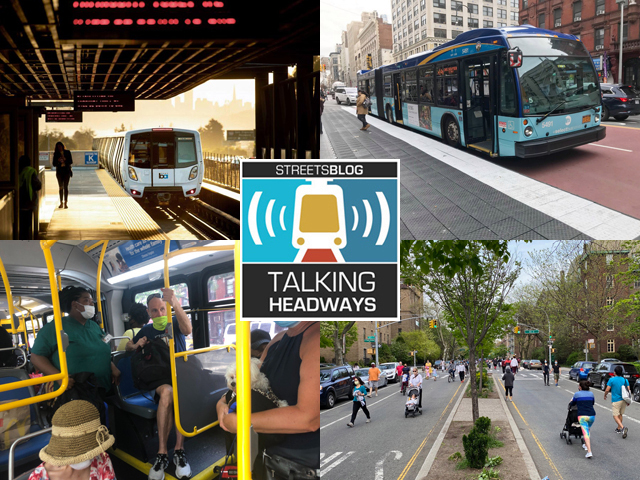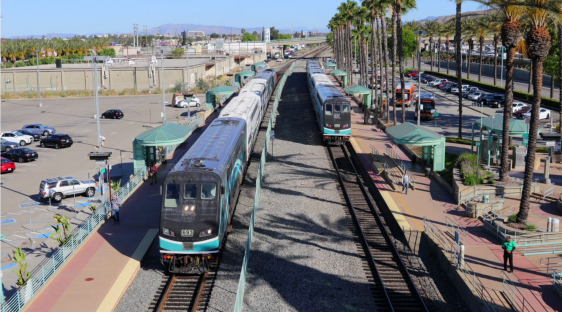This week, Sahar Massachi of the Integrity Institute talks about his MIT Technology Review piece, “How to Save Our Social Media by Treating it Like a City.” Who knew that managing social media’s bad actors is like dealing with urban problems such as black-box highway modeling, speed management, and city building?
For those of you who get your news through your eyes and not your ears, there’s an edited transcript below the audio player. If you want a full, unedited transcript (with some typos!), click here. If you want to listen, here you go:
Sahar Massachi: So you could say that, like integrity is almost akin to organizational behavior or like, like whatever magic an MBA is supposed to give you in terms of understanding how to structure organizations, where you start off with the village of people by the bend in the river who are just like having a good time. And you say, "This is great. We’re not going to impose all these onerous stuff on them. If we do, we’d lose that organic vitality." But, as more people grow and those bonds of trust become weaker, you’d want to have some sort of method for them to solve problems. You want to have some sort of scale, like you have a little bit of content moderation on a forum, right?
That’s the first thing you try that lasts you for a while but, when it gets big enough, individual content moderation doesn’t work and you have to find things that are more akin to the structural problems and how it all works. And maybe to use again, the Facebook analogy, not everyone on Facebook can post on Mark Zuckerberg's wall. You can’t post on anyone but your friend’s wall. And that’s a design choice that was mentioned as some sanity to the system. And there’ll always be those design choices. And then the question is, to what end are these design choices being made? Are they simply for order or for the sense of more engagement and growth, or are they also for the collective flourishing of the citizens?
To round out this point, if you look at something like Clubhouse, they’re an example. I think of that little village, having the spark of something fun that people really found and then grew organically. But, you know, because we’re in the internet and the city of atomic Superman, and because things happen at internet scale, as opposed to human scale, suddenly millions of people were using this thing that only had the processes and the tooling ready for a hundred or a thousand people. And then they ran into a big problem. And so I’d say that, because things can grow really quickly, baking in integrity concerns, or at least the bones of integrity concerns in the beginning will really help.
Jeff Wood: That’s interesting. That goes to another point that I felt like I wanted to discuss with you when I was reading the piece and reading other pieces as well. There’s a really important 1938 paper by a guy named Louis Wirth. We actually read it in full with the permission of the University of Chicago, on our 200th episode. His article was called, "Urbanism as a Way of Life." Basically it discussed why people acted differently when they moved to cities, as urbanization was increasing. You know, the construct created by a city, according to Wirth, is that people can be anonymous and create more impersonal relationships. They can also be more specialized with their work and interests. It’s not like being in that small village anymore. It’s moving to a place that is larger and you have to kind of deal with more people as they come at you.
Imagine, you know, 19-teens, 1920s New York, and how many people were walking in the streets before automobiles. During the time of railway travel and streetcars, you just had to deal with this throng of humanity. What’s interesting about this is the connection to your piece about how social media has supercharged this characteristic of cities. But the important factor that you mentioned is the actual physicality of cities and of building that physicality into social spaces because of what you mentioned with that Clubhouse example, which is that stuff can grow so fast — so unwieldy that it is out of control. Even in the city, like Louis Wirth said, gets unwieldy. It gets a little bit overwhelming for people and they decide to not have as many strong connections. But it’s interesting that you bring that part of an Intuit as well, is that if you have a physical limit that doesn’t exist online necessarily, but you build that into the system, it makes it actually more palatable to be a member of that society.
Massachi: Absolutely. The growth of a city is in some sense bounded by the number of homes you can build in a period of time, right? You’re not going to see a club of 15 artists turn into a metropolis of 2 million people in the span of two weeks. It’s just physically impossible to do it. And that gives people some human-scale time to figure out the emerging problems and have some time to experiment with solutions as the city grows. And that’s a sort of growth. That’s a story about the growth of a small platform to a big one, but it’s also the same kind of thing of just how lies are spread, how hate speech is spread — any sort of behavior.
In human civilizational time, we’ve discovered a way for people to teleport and have bot armies in a digital city. We just don’t know how to deal with it yet. It’s going to take us, I don’t know, maybe decades to figure it out. We might have to have some new laws; we’ll have new norms of politeness.... We need to have a whole generation of people understand media literacy and then grow to be the old people, right? Like cohort replacement, so that the entire population has a media literacy. If you want to call it that, it’s going to take a lot of time. And until then, I’d say that we want to have people’s existing intuitions. We have to give them something to hook into. We have to make the reality of how online works close enough to people’s intuitions that they’re not so easily bamboozled.
Just as designers of these products, it doesn’t have to be about the "us virtuous enlightened people" and the "bamboozled masses." The people who make these products also have intuitions that aren’t incorrect. The power users, the so-called sophisticates and the people who take to city life, also suffer from the same sorts of mismatch between what they expect life to be and how it actually is. And in that gap is where a lot of dangerous behavior can exist.






